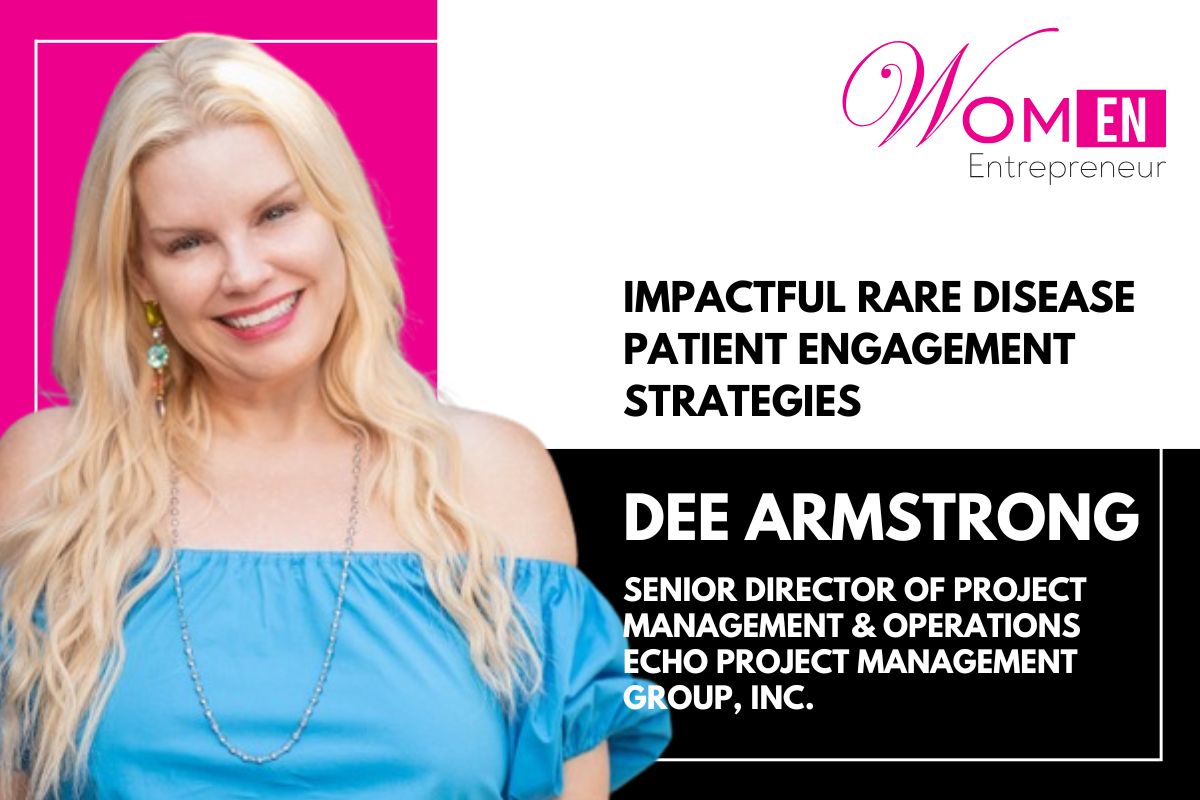Healthcare research is evolving rapidly, but one area remains complex and deeply human rare disease patient engagement strategies. These strategies are not only about data and delivery but also about compassion, trust, and precision. At the center of this transformation is Dee Armstrong, Senior Director of Project Management & Operations at Echo Project Management Group, Inc.
With nearly two decades of expertise, Dee has built a reputation for leading healthcare projects with clarity, empathy, and execution. This blog explores how her leadership exemplifies impactful project delivery, shaping the future of patient engagement in rare disease studies.
Rare Diseases Need Special Focus
Rare diseases often affect fewer than 200,000 individuals in the U.S., but collectively they impact millions worldwide. These conditions are unique, highly complex, and frequently misunderstood. Engaging patients in such studies requires:
- Customized recruitment strategies
- Culturally sensitive communication
- Strong trust-building frameworks
- Clear alignment with patient advocacy groups
Without these, projects stall or fail, causing delays in treatment development. This is where seasoned leaders like Dee Armstrong make the difference.
Echo’s Mission-Driven Approach
Echo Project Management Group was founded with a mission: to bring impactful solutions to healthcare research. Unlike traditional firms, Echo focuses on:
- Patient-first engagement methods
- Rare disease recruitment precision
- Strategic collaboration with sponsors and CROs
- Seamless integration of project operations
Dee Armstrong has been central in driving this mission. Her ability to merge rare disease patient engagement strategies with operational excellence makes Echo a trusted partner for high-stakes research.
Why Patient Engagement Matters
Patients are not just participants in research; they are the foundation. Effective engagement strategies ensure:
- Higher recruitment rates
- Improved retention throughout studies
- Richer, more accurate data collection
- Greater trust between patients, sponsors, and researchers
In rare disease studies, where patient numbers are already small, losing even a few participants can derail progress. That is why leaders like Dee emphasize impactful approaches balancing empathy with execution.
Challenges in Rare Disease Recruitment
Recruiting patients for rare disease studies is never straightforward. Barriers include:
- Limited patient pools
- Geographic restrictions
- Lack of awareness about clinical trials
- Historical distrust in medical research
Overcoming these challenges requires creativity and persistence. Dee has mastered this by aligning Echo’s processes with advocacy groups, leveraging technology, and building transparent communication channels.
Impactful Project Execution
Dee’s leadership is defined by her ability to bring order to complexity. At Echo, she ensures:
- Comprehensive project planning from scope to close
- Clear timelines with accountability checkpoints
- Budget adherence without compromising quality
- Agile adjustments when unexpected challenges arise
This focus on execution ensures that rare disease patient engagement strategies don’t just look good on paper they deliver measurable outcomes. Her impactful leadership has rescued stalled projects and guided them to successful completion.
Strategic Partnerships Build Trust
No project succeeds in isolation. Dee emphasizes collaboration with:
- Healthcare providers (HCPs)
- Patient advocacy groups
- Sponsors and CROs
- Research coordinators and data managers
These partnerships ensure that every voice, especially the patient’s, is valued. In rare disease studies, advocacy groups often hold the key to reaching patients. By building impactful relationships with these groups, Echo expands its ability to connect with hard-to-reach communities.
Technology in Patient Engagement
Modern healthcare research demands the use of technology. Dee has led Echo in adopting tools such as:
- Secure patient databases
- Digital recruitment campaigns
- Remote participation platforms
- AI-driven data cleaning
These innovations streamline rare disease patient engagement strategies, making them scalable and efficient. But technology alone isn’t enough. Dee ensures the human element remains central, blending data with empathy for an impactful outcome.
The Human Element in Research
Dee often says that “process means nothing without people.” Her leadership focuses on building teams that prioritize:
- Transparency in communication
- Accountability in delivery
- Respect for patient voices
- Continual staff development
Her ability to cultivate impactful leadership within her teams ensures sustainable success. Projects don’t just meet deadlines they exceed expectations by putting people first.
Lessons from Dee Armstrong’s Leadership
Professionals in healthcare and beyond can learn from Dee’s approach:
- Clarity Matters: Define scope, timelines, and goals early.
- Empathy Counts: Patient engagement requires compassion, not just metrics.
- Agility Wins: Be ready to pivot when challenges appear.
- Collaboration is Power: Trust is built through partnerships.
- Impactful Leadership Inspires: When leaders prioritize people, performance follows.
These principles resonate across industries but are especially critical in healthcare research.
Future of Patient Engagement
The future of rare disease patient engagement strategies is promising. Emerging trends include:
- Increased use of decentralized trials
- AI-enhanced recruitment targeting
- Greater involvement of patient advocacy groups
- Stronger focus on diversity and inclusion
Dee’s impactful leadership positions Echo at the forefront of these changes. By staying agile and patient-centered, she ensures Echo remains a trusted partner in advancing medical research.
Conclusion
Rare disease research is not just science, it’s humanity at its most resilient. Effective rare disease patient engagement strategies require balance: precision in operations and compassion in execution. Dee Armstrong embodies this balance, guiding Echo with impactful leadership that turns uncertainty into clarity.
As the healthcare landscape evolves, one question remains: how will organizations adapt to keep patients truly at the center? Leaders like Dee are already showing the way, proving that when strategy meets empathy, the results are not just powerful but profoundly human.
